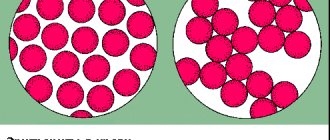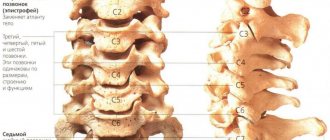People who take dietary supplements think that it will help them strengthen their immune system, get enough sleep, be energetic, improve their skin condition, replenish micronutrient deficiencies while following a strict diet, and so on.
Getting all the nutrients you need from pills seems like a simple and attractive way, but supplements can be dangerous or useless. We tell you what you need to know about dietary supplements.
You are unlikely to need dietary supplements if your diet is healthy and balanced Photo: ru.freepik.com
What are dietary supplements
Dietary supplements (dietary supplements) are products that include one or more substances: vitamins, microelements, herbs or other plant components, amino acids and other components that can be used as a nutritional supplement.
Dietary supplements include:
- vitamins and microelements are “helpers” that, when combined with proteins, form active molecules (enzymes) that participate in biochemical reactions in the body;
- amino acids - organic compounds from which protein is built;
- natural nutritional supplements of plant and animal origin: spirulina, echinacea, milk thistle, ginko, collagen, lecithin and others;
- prebiotics - live intestinal bacteria: lactobacilli, bifidobacteria;
- probiotics - a nutrient medium for bacteria;
- other groups: essential fatty acids, immunomodulators, adaptogens, enzymes, dietary fiber and others.
Is it really? Why is this happening?
To answer the question, here is a quote from Wikipedia: “The Russian pharmaceutical market is one of the fastest growing in the world. In 2008, sales on it amounted to about 360 billion rubles. The Russian pharmaceutical industry provides approximately 70% of Russian healthcare.”
And in addition, let's pay attention to the Top 10 pharmaceutical companies by profit for 2013:
- Johnson & Johnson – $71.312 billion
- Novartis – $57.920 billion
- Roche – $52.307 billion
- Pfizer – $51.584 billion
- Sanofi – $45.078 billion
- GlaxoSmithKline – $44.146 billion
- Merck & Co. – $44.033 billion
- Bayer HealthCare – $25.969 billion
- AstraZeneca – $25.711 billion
- Eli Lilly – $23.113 billion
World-class scientists do not hesitate to claim that, despite numerous studies, advanced developments and a large number of discoveries, man still remains a mystery to science, his structure and internal connections are still too complex to “read” the human body as an open book. So why is everything so simple on television? Or, unfortunately, everything is banally simple and yet there are those who “call the tune”?
What decision should I make?
Should I go to the clinic for my next – second, third, fifth – appointment or try to find an alternative approach?
How do dietary supplements differ from medications?
The same active substances can be sold as a medicine and as a dietary supplement. What is the difference?
| dietary supplement | Medicine | |
| Clinical researches | Does not require clinical studies to prove their safety and effectiveness. | Must undergo several stages of testing to verify safety, prove its effectiveness in clinical studies compared to other drugs or placebo. |
| Description of side effects and clear indications for use | Possible side effects are extremely rarely indicated in the instructions and are often not recorded in any way. There are practically no studies on interactions with other medicinal substances. | It has clear indications for use and recommended dosages. Possible side effects and interactions with other drugs are described. |
| Composition and quality control | There is no evidence of quality, the composition may differ from that indicated on the packaging and may contain additional impurities. | Strict control of the composition and quality of medicinal products, absence of impurities. |
You can distinguish a medicinal product from a supplement by its packaging or by the first lines of the instructions for use.
Package. On dietary supplements there is always a phrase that this product is not a drug or that this is a biologically active food supplement.
International name. The instructions for the medicinal product always indicate the international name, belonging to the pharmacological group and pharmacological properties.
The Detrimax bottle states that this dietary supplement is not a drug
The instructions for Aquadetrim contain the international name
How to check if there is a medicine or not
On the website of the Ministry of Health in the State Register of Medicines, all medicines approved for use in Russia are listed.
To check whether the contents of the package are a medicinal product, follow the link and enter the trade name in the “Trade name” line. If the search did not return anything, the drug is not registered in Russia as a medicinal product.
Data on Detrimax was not found in the State Register of Medicines because it is not a medicine
The effect is unpredictable
Go ahead. Let's assume that you are lucky on all fronts. The dietary supplement turned out to be of really high quality, and the declared effect is there: you become more energetic, cheerful, and look great. How do you know that you are not developing liver, kidney or pancreas disease at this time? Or is the process of formation of gallstones not progressing? All these organs can remain painless for a long time, even to the point of complete failure. And then an urgent transplant will be required and, if it happens, months of rehabilitation.
We would like to draw your attention: dietary supplements are not tested for side effects. Therefore, you cannot know what the outcome of taking a particular nutritional supplement will be.
A woman took a turmeric supplement to prevent a stroke and developed hepatitis. A 71-year-old woman from Arizona in the United States took a turmeric supplement to prevent a stroke and developed autoimmune hepatitis.
What's wrong with dietary supplements
Dietary supplements can be easily purchased at a pharmacy, store, or online. They do not require a prescription or permission from a doctor, but before you start taking them, it is worth considering how dietary supplements can affect the body.
Dietary supplements will not cure and are unlikely to make you healthier
Science continues to conduct research on dietary supplements - here are some examples of scientists' conclusions.
- Taking Omega-3 fatty acids does not reduce the risk of developing cardiovascular diseases.
- Taking vitamin C supplements does not reduce the incidence of colds in the population. There was no effect on the duration or severity of the disease.
- Vitamin D supplementation during weight loss did not increase weight loss or affect other outcomes compared with placebo. Although study participants who had a deficiency and compensated for it lost a little more weight.
- Taking biological supplements by cancer patients, at best, has no effect on survival, and taking antioxidants - vitamins C, E, A, beta-carotene, etc. - is significantly associated with an increased risk of disease relapse.
- There is no benefit to men taking dietary supplements to improve fertility: sperm studies in a group of men taking zinc and folic acid supplements were no different from a group of men not taking anything.
Dietary supplements can be dangerous
When talking about the benefits of dietary supplements, at best, they refer to observational studies, when a researcher collects data by observing a group of people, at worst, to the unsubstantiated assurances of the manufacturer.
An example of an observational study. We gathered a group of people who regularly take dietary supplements. Observing them, the researcher can draw conclusions based on surveys about changes in well-being, but at the same time do not support them with objective assessment methods (blood tests, a doctor’s opinion, etc.) and do not take into account factors influencing the result (regular sports, a balanced diet, medical checkups, etc.). The results of the observational study will provide information only about the main request: changes in the quality of life while taking dietary supplements.
It seems that dietary supplements definitely won’t do any harm, but uncontrolled use of dietary supplements may have undesirable consequences that are not written about on the packaging.
Allergic reactions can occur both to the main component of the drug and to auxiliary components, which may not be listed in the composition.
Unexpected effects on the body due to the presence of impurities that have a more pronounced effect than the declared substance in the supplement. For example, in 2015, during a random check of dietary supplements to increase potency, the substances tadanil and sindelafine (the active ingredient in Viagra) were identified in several of them, which must be sold by prescription, have a clear range of possible dosages and are contraindicated for a number of diseases.
Deterioration in the function of individual organs. For example, there may be an increase in the enzymes ALT and AST, which occurs when liver cells are damaged, especially when taking multicomponent drugs. Cases of liver failure after taking dietary supplements have also been described.
Surpluses are conditions in which the body receives more vitamins or micronutrients than required. This applies to a greater extent to fat-soluble vitamins (A, E, D, K), since they can accumulate and exhibit significant side effects.
For example, excess vitamin A causes increased intracranial pressure, headaches, nausea, damage to liver cells, and, when taken during pregnancy, fetal malformations.
Iron preparations taken without indications, when accumulated in the body, can cause vomiting, loose stools, deterioration of liver function, damage to the nervous system (lethargy, convulsions), blood clotting disorders and other symptoms.
Self-administration of dietary supplements can lead to unexpected reactions of the body, deterioration of well-being and even harm to health.
Healing affect
Minsk resident Alexandra is 23 years old.
Sasha learned about wonderful pills that help maintain beauty on the page of a popular fitness blogger. I also decided to “take some vitamins.” It turned out that almost everything offered had to be ordered from the American website. From the blogger as a gift - a promotional code for a discount. — I took a dietary supplement that increases learning ability, memory and intelligence. It was inexpensive, about $10 per jar,” the girl recalls.
After the first days of taking it, her health worsened:
“In the morning I began to shake, and later I started to feel pain in my stomach and my heart was tingling. I couldn't figure out what was wrong. Until I decided to stop taking the supplement. It became easier almost immediately.
Alexandra decided to look for reviews about the dietary supplement on the Internet. It turned out that she was not the only one having similar problems. The girl decided to warn the blogger that the product is not suitable for everyone. Wrote a personal message:
“It was read, but no answer, no reaction.” I wrote a comment under the post. A few hours later it was deleted and I was blocked. But another girl with similar symptoms managed to write to me. It seems to us that this should under no circumstances be hushed up.
Recently, BBC News published the story of American Jim McCants. Remembering his father, who died of a heart attack at the age of 59, at the age of 50 Jim took his health seriously: proper nutrition, exercise, giving up bad habits. Every day for several months he took a dietary supplement - green tea extract in capsules. The advertisement claimed that the product would improve heart function, prevent cancer and help you lose weight.
liberty-rb.ru
Some time later, McCants was admitted to the hospital with suspected cirrhosis of the liver. He urgently underwent a transplant of this organ. Now, four years later, the American also suffers from kidney disease and chronic abdominal pain. The man sued the company - a manufacturer of dietary supplements. He wants warnings about possible risks placed on capsule packaging.
Professor Herbert Bonkowski, head of the department of liver diseases at Wake Forest University, said that he knows of about 60 cases of people who took drugs with green tea extract who were hospitalized with cirrhosis of the liver: “If you don’t drink a lot of green tea, you nothing is in danger. People who consume the extract are at risk.”
In what cases can dietary supplements be prescribed?
Dietary supplements in the form of vitamins and microelements can be prescribed by a doctor if it is not possible to take them in the form of medications. That is, if there is no suitable dosage form, or the drug is not available due to re-registration, or the patient has some characteristics or personal preferences, etc.
Possible indications for the use of dietary supplements:
- proven deficiency of vitamins (hypo- and avitaminosis) and microelements in the body. Symptoms of hypovitaminosis occur in people with eating disorders or after surgery on the digestive system;
- for preventive purposes - for example, in case of insufficient intake of micronutrients from food (exclusion of certain foods in the diet) or in case of large losses by the body, dietary supplements containing vitamins and microelements can be prescribed. For preventive purposes, vitamin D and iodine preparations can be prescribed;
- special health conditions - for example, during pregnancy, women are recommended to take folic acid, iron, vitamin D, iodine preparations and other substances according to indications to reduce the risk of fetal malformations.
Dietary supplements may not have a proven pharmacological effect, but affect the absorption, metabolism and excretion of other drugs. For example, taking many medications, including antibiotics, hormonal contraceptives and calcium, reduces the absorption of iron.
Research on drug-supplement interactions is being conducted, but not all interactions have been reported. You can check how medications interact with each other, with some dietary supplements and food products, at drugs.com. To do this, enter the name of the active substance of the drug in the search bar, and not the trade name (indicated on the packaging under the trade name or in the instructions for the drug).
Taking dietary supplements is possible only after examination and consultation with a doctor, who will evaluate possible interactions of the substances with other medications taken.
Fish fat
In addition to eating fish several times a week, most adults can benefit from taking fish oil, which is high in the omega-3 fatty acids eicosapentaenoic acid (EPA) and docosahexaenoic acid (DHA). In our bodies, EPA and DHA act as precursor chemicals that help reduce inflammation.
Don't forget: Inflammation is common and is associated with a variety of common and serious health conditions, from arthritis and asthma to cancer and heart disease. Even conservative medicine in some cases supports taking fish oil. Today, the American Heart Association recommends that patients with coronary artery disease take 1 gram of fish oil daily .
The National Institutes of Health also calls it beneficial, not only in treating patients with heart problems, but also in normalizing elevated triglyceride levels and high blood pressure . These three indications are rated A, meaning the National Institutes of Health considers these recommendations to be backed by strong scientific evidence .
The use of fish oil in the primary prevention of heart disease and the treatment of rheumatoid arthritis is rated B (there is good evidence to support its use), while the use of fish oil for another 27 diseases, from cancer prevention to depression and schizophrenia, is rated C (there is some evidence, but further study required).
Fish oil is rich in anti-inflammatory omega-3 fats. Most people these days consume many more calories from sources of inflammatory omega-6 fats. Many years ago, before the advent of processed foods, the human diet contained almost equal amounts of omega-3 and omega-6 fats. Today, it is not uncommon for people to consume 25 times more omega-6 fats than omega-3 fats, which increases inflammation in the body and increases the risk of developing related diseases.
As we discussed in Chapter 2, inflammation underlies every stage of the process that leads to the formation of unstable plaque in the arteries and heart attacks. It also causes many other diseases such as Alzheimer's disease, cancer and arthritis. Limiting your intake of omega-6 fats (mainly vegetable oils) and increasing your intake of fish oil through food and supplements can help restore balance.
There is currently no RDA for omega-3 fats, but the National Institutes of Health recommends healthy adults consume 4 grams of these fats per day. Our ONA for EPA is 750-3000 mg per day and for DHA is 500-2000 mg per day. Vegetarians can get 2.5 grams of omega-3 fats with every teaspoon of flaxseed oil .
Where can healthy people get nutrients?
The substances the body needs can be obtained with a healthy, balanced diet. And this is the best option, because vitamins and microelements from food are better absorbed.
In addition, virtually each of the products contains many more different important substances: proteins, fats and carbohydrates of various types, phytonutrients, etc. Over the entire period of evolution, the human body has adapted to absorb everything necessary for functioning from food.
If you suspect that you have any deficiencies or other reasons for taking dietary supplements, consult a doctor (namely a doctor, not a nutritionist or health coach from social networks). In all other cases, just build your diet as varied and balanced as possible. For example, you can follow these simple recommendations from the Government of Canada.
Author: Alena Khripkova, general practitioner, cardiologist, functional diagnostics doctor
Literature
1. Effects of Nutritional Supplements and Dietary Interventions on Cardiovascular Outcomes, Annals of Internal Medicine 2. Common Herbal Dietary Supplement—Drug Interactions—American Family Physician 3. Daily iron and folic acid supplementation during pregnancy, World Health Organization 4. Nutritional interventions update: vitamin D supplements during pregnancy, Guideline, World Health Organization 5. Mildly Elevated Liver Transaminase Levels: Causes and Evaluation, American Family Physician 6. Federal Law “On the Quality and Safety of Food Products” dated January 2, 2000 N 29-FZ (latest edition) / ConsultantPlus 7. Caitlin Mason, Liren Xiao, Ikuyo Imayama, Catherine Duggan, Ching-Yun Wang, Larissa Korde, Anne McTiernan, Vitamin D3 supplementation during weight loss: a double-blind randomized controlled trial, The American Journal of Clinical Nutrition, Volume 99, Issue 5, May 2014, Pages 1015–1025, https://doi.org/10.3945/ajcn.113.073734 8. Ruben Manuel Luciano Colunga Biancatelli, Max Berrill & Paul E. Marik (2020) The antiviral properties of vitamin C , Expert Review of Anti-infective Therapy, 18:2, 99-101, DOI: 10.1080/14787210.2020.1706483 9. Associations of Omega-3 Fatty Acid Supplement Use With Cardiovascular Disease Risks, Theingi Aung, Jim Halsey, Daan Kromhout, JAMA Cardiol. 2021. 10. Zinc, folic acid supplement does not improve male fertility, NIH study suggests, National Institutes of Health 11. Vitamin supplements and cancer risk, Cancer Council NSW
Sources
- Cariello M., Piccinin E., Moschetta A. Transcriptional Regulation of Metabolic Pathways via Lipid-Sensing Nuclear Receptors PPARs, FXR, and LXR in NASH. // Cell Mol Gastroenterol Hepatol - 2021 - Vol11 - N5 - p.1519-1539; PMID:33545430
- Henchion M., Zimmermann J. Animal food products: policy, market and social issues and their influence on demand and supply of meat. // Proc Nutr Soc - 2021 - Vol - NNULL - p.1-12; PMID:33397528
- Visioli F., Poli A. Fatty Acids and Cardiovascular Risk. Evidence, Lack of Evidence, and Diligence. // Nutrients - 2021 - Vol12 - N12 - p.; PMID:33317164
- Hassan FU., Arshad MA., Ebeid HM., Rehman MS., Khan MS., Shahid S., Yang C. Phytogenic Additives Can Modulate Rumen Microbiome to Mediate Fermentation Kinetics and Methanogenesis Through Exploiting Diet-Microbe Interaction. // Front Vet Sci - 2021 - Vol7 - NNULL - p.575801; PMID:33263013
- Gotteland M., Riveros K., Gasaly N., Carcamo C., Magne F., Liabeuf G., Beattie A., Rosenfeld S. The Pros and Cons of Using Algal Polysaccharides as Prebiotics. // Front Nutr - 2021 - Vol7 - NNULL - p.163; PMID:33072794
- Sridevi V., Naveen P., Karnam V.S., Reddy PR., Arifullah M. Beneficiary and Adverse Effects of Phytoestrogens: A Potential Constituent of Plant-based Diet. // Curr Pharm Des - 2021 - Vol27 - N6 - p.802-815; PMID:32942973
- Schoenthaler A., Cruz J., Payano L., Rosado M., Labbe K., Johnson C., Gonzalez J., Patxot M., Patel S., Leven E., Mann D. Investigation of a Mobile Health Texting Tool for Embedding Patient-Reported Data Into Diabetes Management (i-Matter): Development and Usability Study. // JMIR Form Res - 2021 - Vol4 - N8 - p.e18554; PMID:32865505
- Thiruvengadam M., Venkidasamy B., Thirupathi P., Chung I.M., Subramanian U. β-Casomorphin: A complete health perspective. // Food Chem - 2021 - Vol337 - NNULL - p.127765; PMID:32799161
- Chehade M., Brown S. Elimination diets for eosinophilic esophagitis: making the best choice. // Expert Rev Clin Immunol - 2020 - Vol16 - N7 - p.679-687; PMID:32729737
- Roman SN., Fitzgerald KC., Beier M., Mowry EM. Safety and feasibility of various fasting-mimicking diets among people with multiple sclerosis. // Mult Scler Relat Disord - 2021 - Vol42 - NNULL - p.102149; PMID:32408153
We offer you professional assistance from the LEMMA Consultation Center
LEMMA.CENTER:
- this is many years of experience in medical practice
- this is a systematic approach to restoring human health with almost any pathology
- this is a combination of advanced achievements of domestic science and thousands of years of experience of Chinese medicine
- This is a careful selection of drugs from the best manufacturers in Russia and Tibet
- this is safety, environmental friendliness and efficiency of products
- This is an opportunity to get personal advice from an experienced specialist
- this is an opportunity to solve your problem









